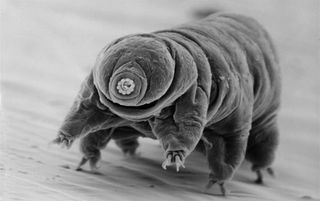Stating the obvious it would depend on which laws and by how much. I'm going to lay out a speculation for consideration
I'm going to pick
1/ Speed of light = 1,000,000,000 km per hour
Have fun by varying speed by half or doubling
2/ Mass or, perhaps more importantly, the effect of mass ie the amount of mass (number of atoms remains same) but effect of the mass halves or doubles
The sentient beings have no explanation for the variations of their physics since there is no linkage between the variations and no pattern in the appearance of the variations
What effects might (could) be expected with such variations?
Happy to answer any questions but like to hear other persons thoughts
I'm going to pick
1/ Speed of light = 1,000,000,000 km per hour
Have fun by varying speed by half or doubling
2/ Mass or, perhaps more importantly, the effect of mass ie the amount of mass (number of atoms remains same) but effect of the mass halves or doubles
The sentient beings have no explanation for the variations of their physics since there is no linkage between the variations and no pattern in the appearance of the variations
What effects might (could) be expected with such variations?
Happy to answer any questions but like to hear other persons thoughts



